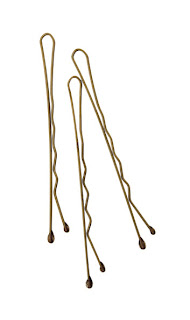Just to be close to this wonderful creation was overwhelming enough. But to be invited to share an intimacy, a revelation, was too much for a tiny heart to bear as it thumped against its tender ribs. To admit a failing to this most perfect of creatures; how could that be?
Hitherto, I had been occupying the blissful ego-centricity of a four year old who’d achieved her deepest desire. I was at school, in the classroom of my dreams. Before me lay the best that A. & J. Arnold & Sons could provide: wooden animal templates to draw around endlessly, colour in and cut out. Thick, soft black pencils to make strong marks upon soft cheap white paper; paper cut with a ruler from a large roll. Coloured wax crayons, silver blunt ended scissors to challenge soft little fingers.
Alongside the visual stimulation of a brand new box of wax crayons, candle smelling and pristine in their black banded, coloured paper wraps was the feel of them; the texture of the paper wrap, the flat bluntness of their bottoms and the oily smoothness of the pointed end that quickly disappeared as it cack-handedly travelled across paper towards its demise. Inevitably, snapping and hanging in two, held together only by that promisingly protective paper. Then into the box of old crayons, divested of their wrapping (all sense of protection now long forgotten), rubbing alongside other misfits and picking up bits of debris which in turn incorporated itself into the surface texture of the crayon. No longer new, clean, unused, differentiated.
Plasticine went the same way but oh, the pleasure of its malleability; softened with the heat of little hands, colours swirling together until, ultimately, the homogenous mass became brown-grey. Then could the real job of creation begin: the rolling snakes then coiling them round and round as the linseed smell invited its user to drift unquestioning into an inner world.
Towards this bliss had I frequently wandered away from my home. I would fetch up at school, knowing the way full well as it was a daily chore to deliver and collect my older sibling. I’d glimpsed that world and I wanted it, so with no conscience off I went to get it.
Poor exasperated mother who, missing her child, had several untimely trips to school to retrieve the unconscionable creature, until the obvious dawned on the dim adults: If she keeps running away to  be here, why not let her in?
be here, why not let her in?
And so I entered Miss Mustoe’s ordered world: pictures on the wall, little wooden chairs just the size of my bottom and the smell of scrubbed bare floorboards. Hum of contented children, innocently occupied beneath Jesus’ beatific Anglican gaze; suffering the little children to come unto him. (It was a drunken Irish Catholic priest who taught us that, in fact, Jesus had done the suffering and it was our miserable sinning had caused it. Ah the joys of comparative religion.)
But Miss Mustoe, how I loved that woman. Crisp striped cotton shirt, buttoned to the neck of its stiff rounded collar and always, always in place of a cravat, the knotted gold chain. Frequently as I listened to wonderful stories, my gaze rested on that knot, musing on how she could have fastened it so tightly against the collar button. Fully-fashioned seamed stockings emerged from neat brogues, polished like new conkers, to disappear under the neatest of neat grey flannel skirts; a skirt, the colour of her short iron-brushed hair, with a rear kick pleat, which skimmed her ample hips and followed the line of her legs as she calmly commanded her orderly classroom.
How could I tell this creature my horrible secret? The knowledge that gradually seeped into my consciousness as the usual humming routine of the morning was disrupted. One by one my fellow tadpoles were called up to ‘Miss Mustoe’s table’. There they each were sat upon a special chair, and one by one, handed a book into their own hands. Worst still, their grubby little forefingers were being guided along lines of words in that book and their lips were moving! Their lips were moving!
As I stood before her, ‘I can’t read’ eventually escaped from my lips, along with the miserable recognition that life was changed forever, that my entitlement to enjoy the benign countenance of that wonderful woman was lost, never to be recovered. But of course it was recovered, swiftly, as Miss Mustoe smilingly gathered me onto the grey platform of her lap and, with the back of my head pressed against her stripy bosom, she placed a book into my own hands, picked up my forefinger and guided it towards the first word. What indescribable joy did that moment bring. I sometimes wonder if Miss Mustoe was one of those spinster teachers who lost her love in the Great War. I’d like Miss Mustoe to know what she gave me that day.






